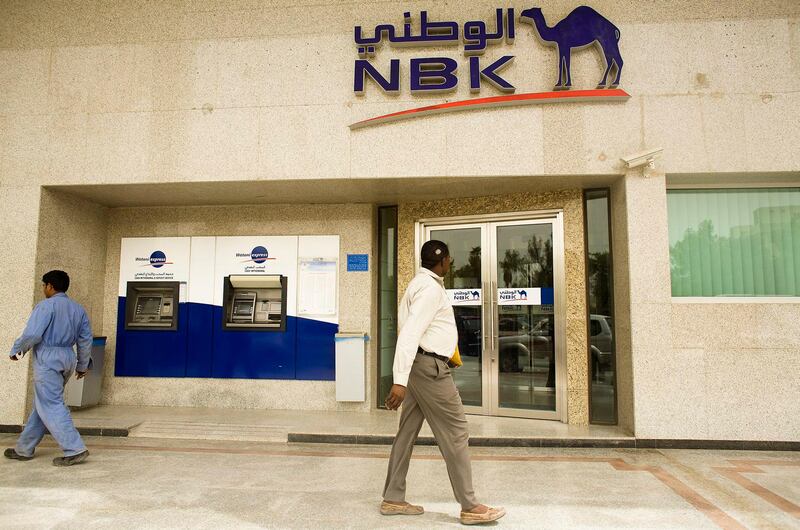Kuwait's economy is set to recover this year, after shrinking in 2017, on the back of increased government spending and an expected rise in oil production in the coming months.
Gross domestic product (GDP) is expected to accelerate to 2.5 per cent this year after falling 2.9 per cent in 2017 as OPEC shifts its policy towards increasing oil output, according to the National Bank of Kuwait (NBK), the country's largest lender. Non-oil growth is forecast to grow 3.5 per cent this year, up marginally from 3.3 per cent in 2017.
"The economy remains on an improving trend, with activity gradually expanding," NBK said in a report.
Kuwait's economic rebound comes after a slowdown triggered by a three-year drop in oil prices. Global producers agreed last month to boost output by a combined 700,000 to 1 million barrels per day as prices returned to highs of $80 per barrel.
The country's GDP, adjusted for inflation, grew 1.6 per cent in the first three months of the year compared to the same period a year ago, according to Kuwaiti state news agency KUNA. The nation's oil sector contributed 48.4 per cent to the economy in the firs quarter, up from 44.5 per cent in the same quarter a year earlier.
_________________
Read more:
Agility files case against Kuwait's Public Authority of Industry over land contract
Kuwait’s VAT delay is credit-negative, says Moody’s
Kuwait vies to reposition itself as hub for business
_________________
NBK forecasts Kuwaiti oil production will rise to 2.8 million barrels a day in the second half of 2018 following OPEC's decision. Oil GDP will rise 1.5 per cent this year and in 2019, the bank said.
Non-oil growth is also expected to pick up as the government increases spending in the 2018-2019 fiscal year for the first time in four years, which should help offset the impact of rising interest rates.
The government needs to take structural measures to boost the economy's long-term growth potential, NBK said.
Key reforms include encouraging job creation in the private sector, to ease pressure on the government absorbing most of the new entrants to the workforce, and improving the business environment.
The projects pipeline, bogged down by continuous delays, is expected to boost non-oil growth over the next few years, NBK said.
Kuwait is scheduled to award 4 billion dinars in projects this year, similar to 2017, but should see a revival from the infrastructure sector and optimism on public-private partnerships, the report said.
Inflation is forecast at an average 15-year low of one per cent this year, down from 1.5 per cent last year, on falling housing costs.
Kuwait, which delayed the introduction of value-added tax until 2021, will see inflation rise to 2.5 per cent in 2019.
The country's budget deficit will narrow slightly to five per cent of the GDP this year on rising oil prices and production, NBK said.







